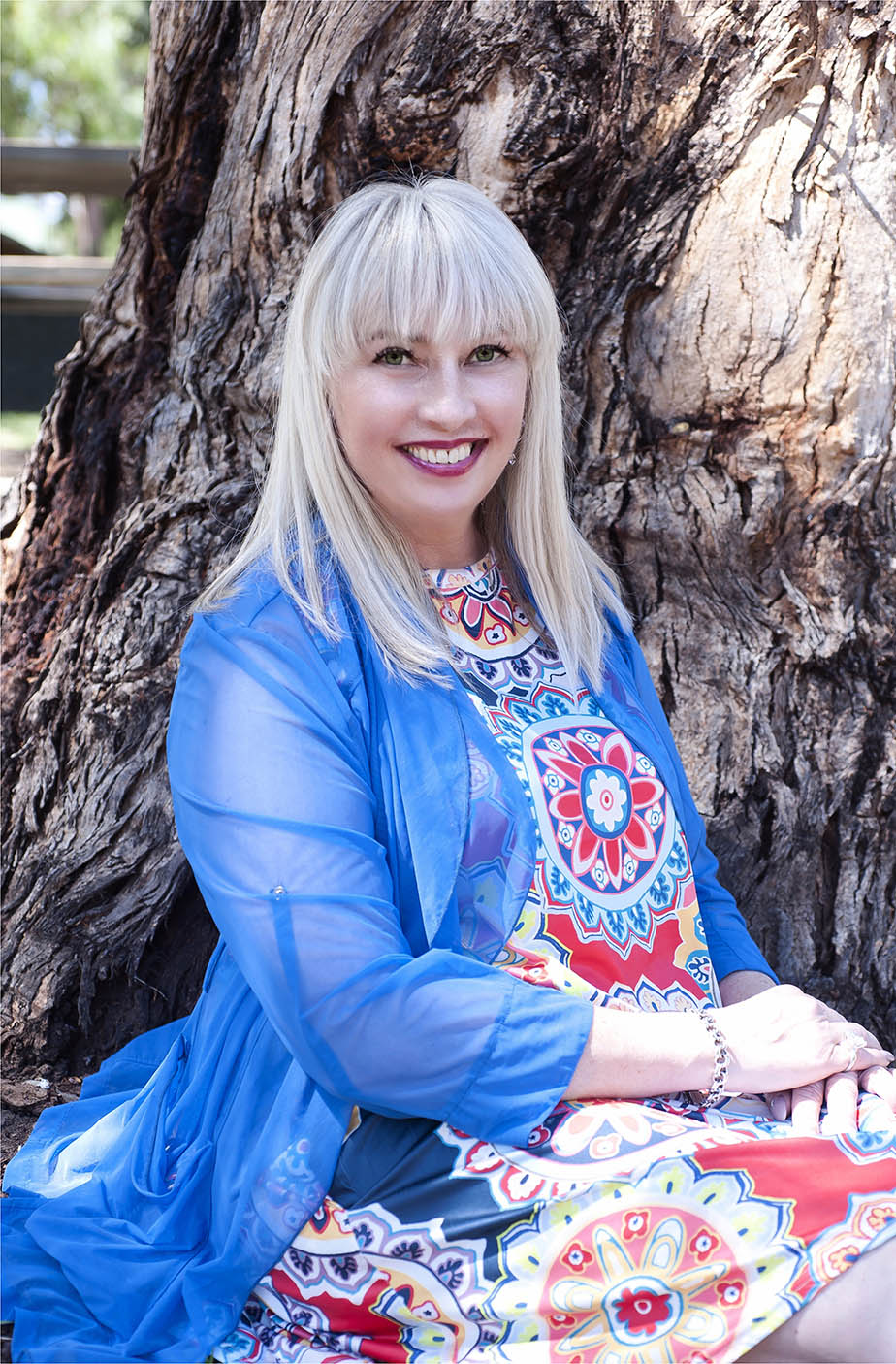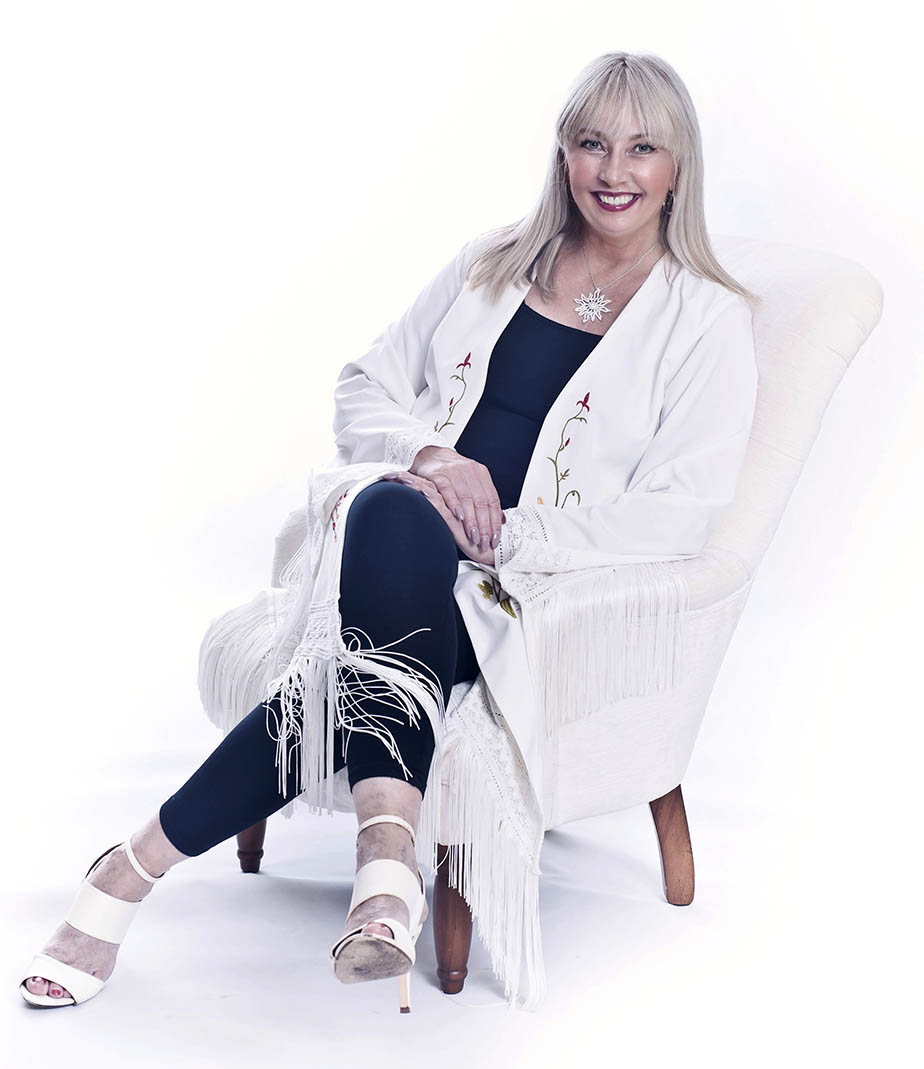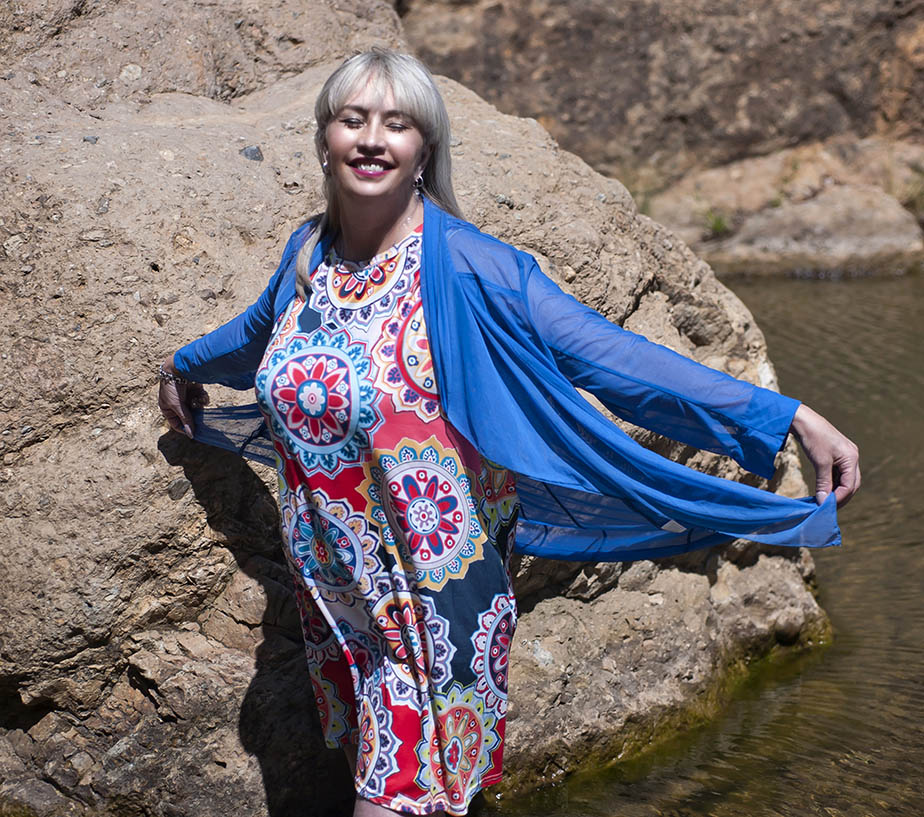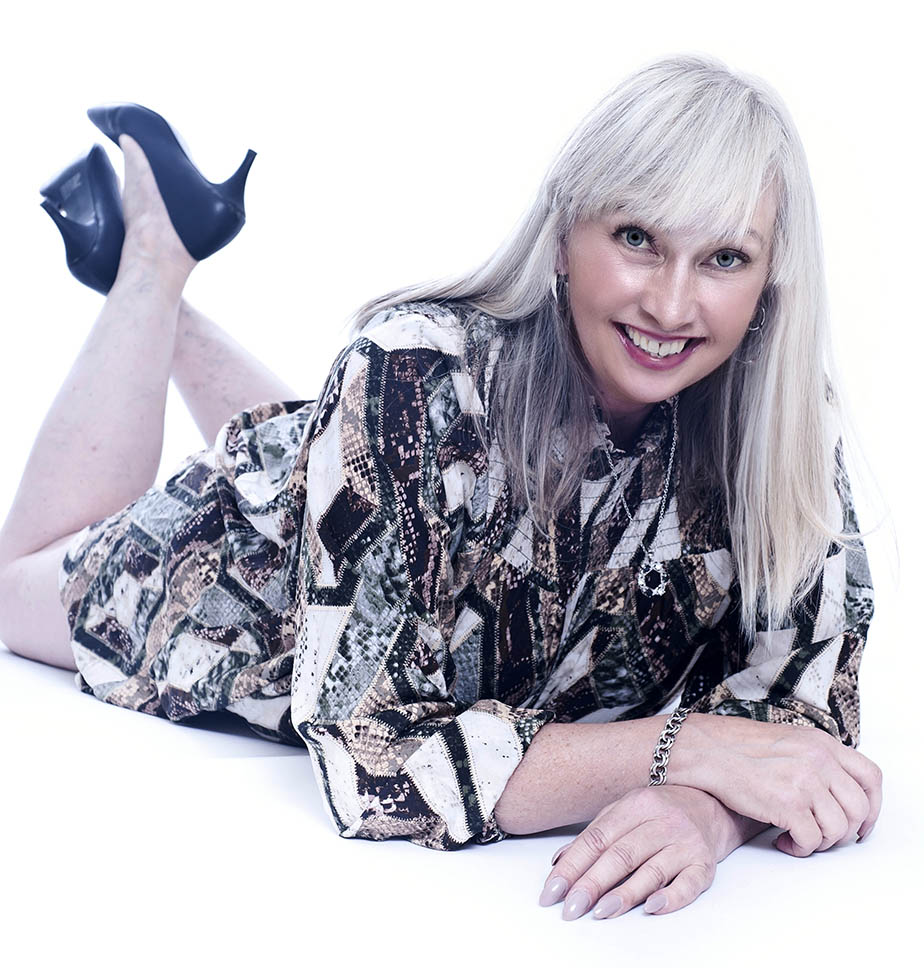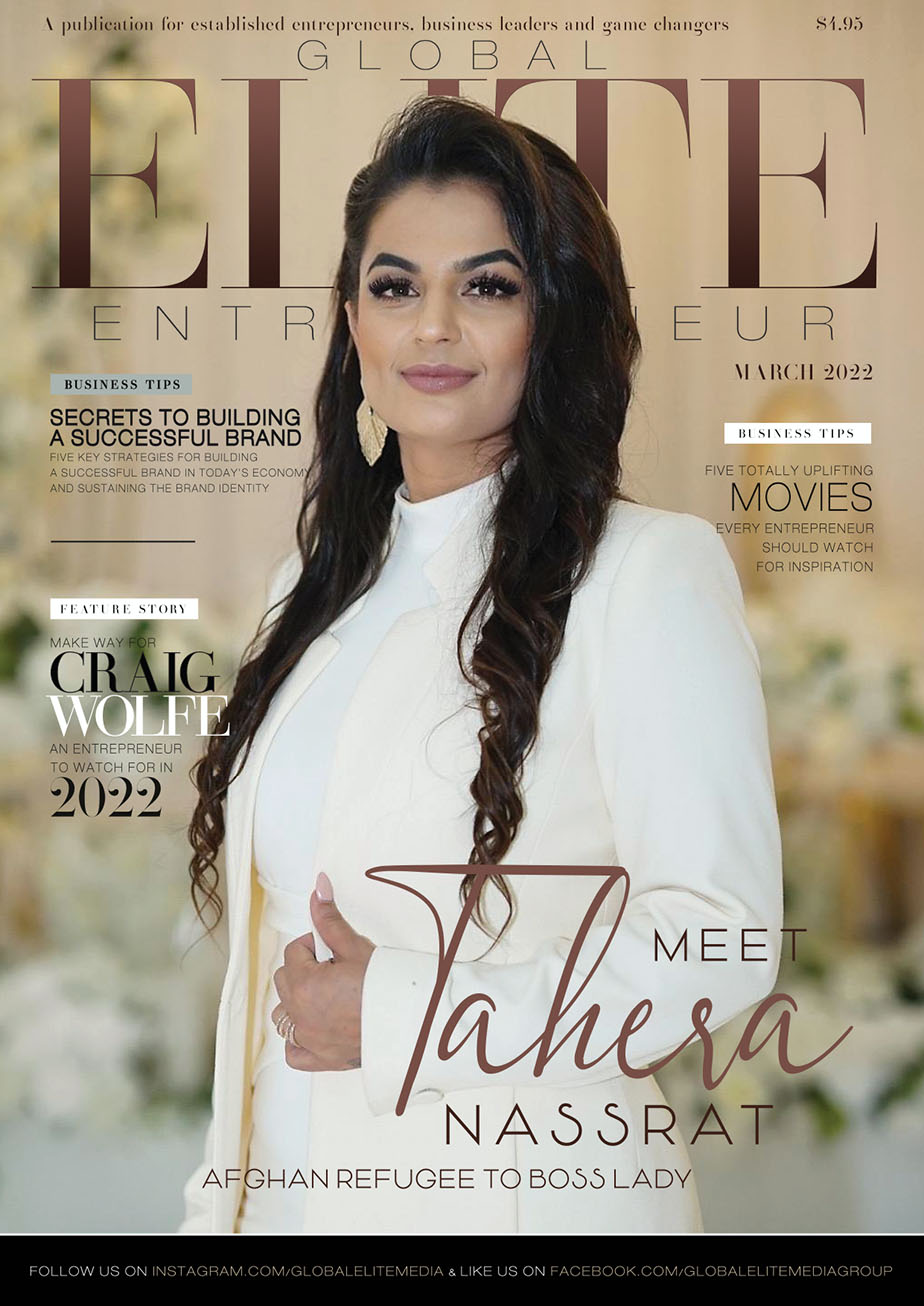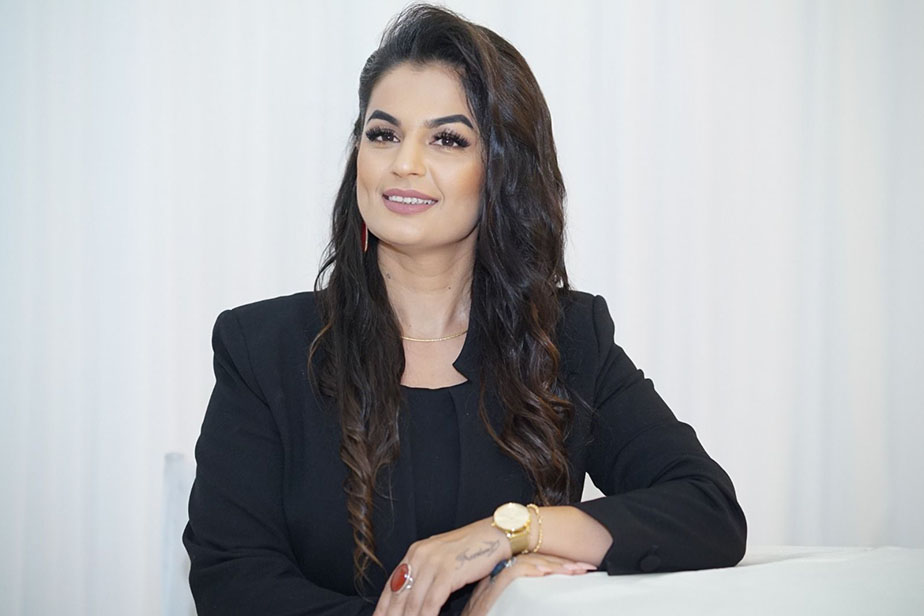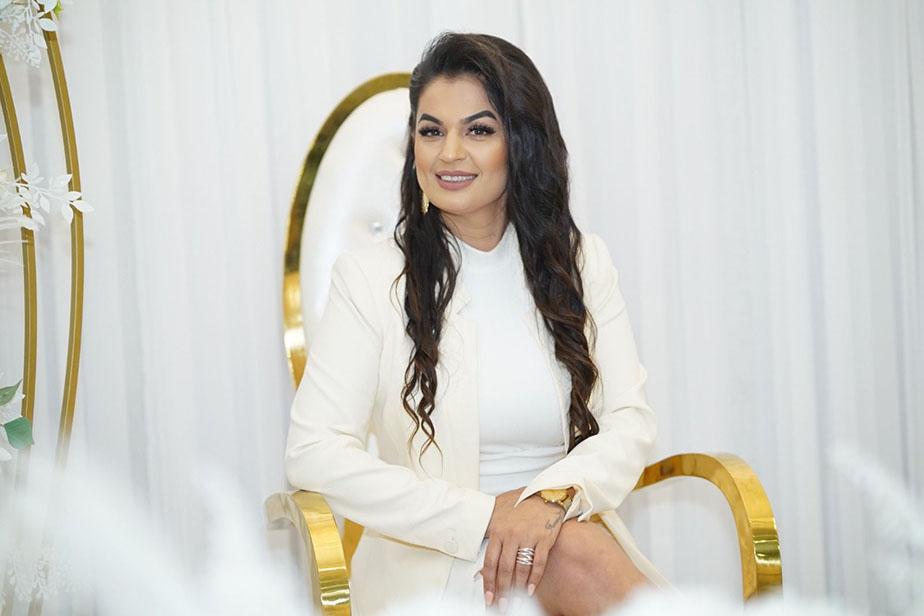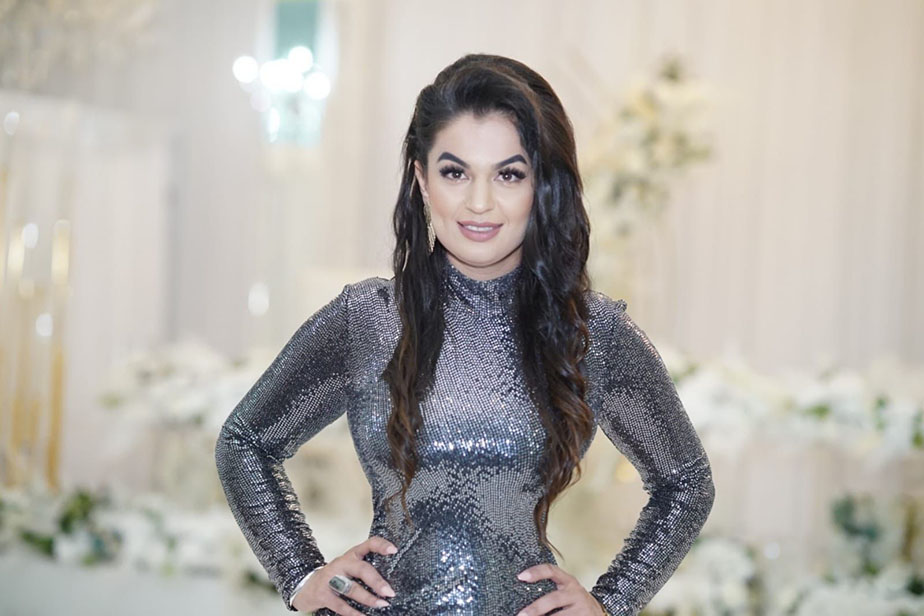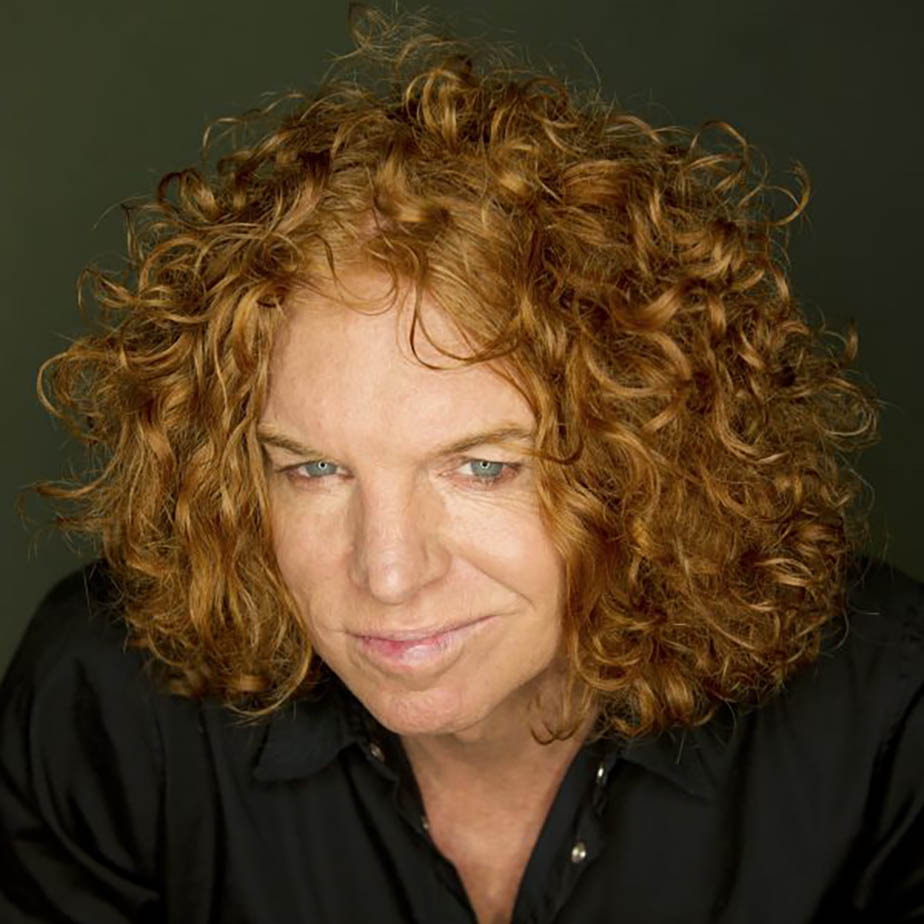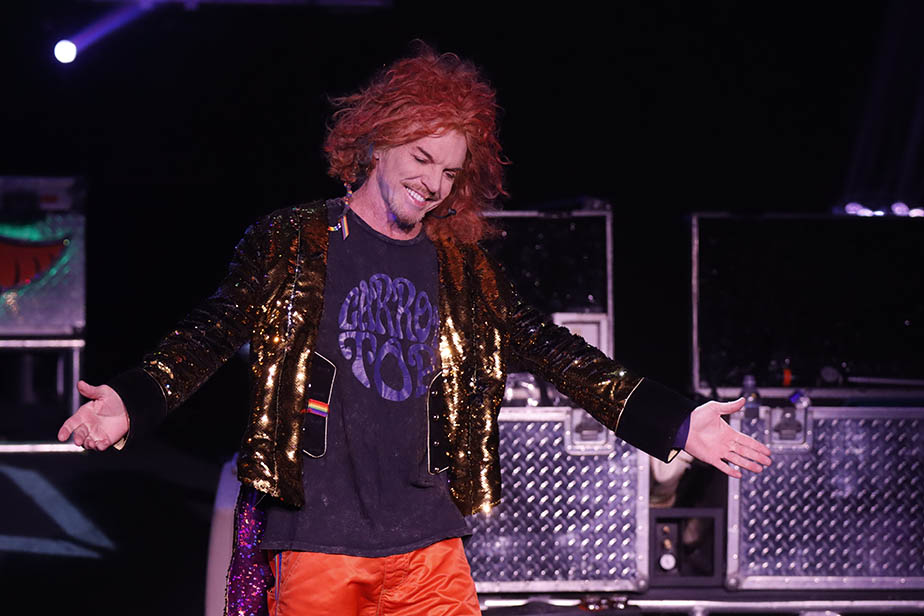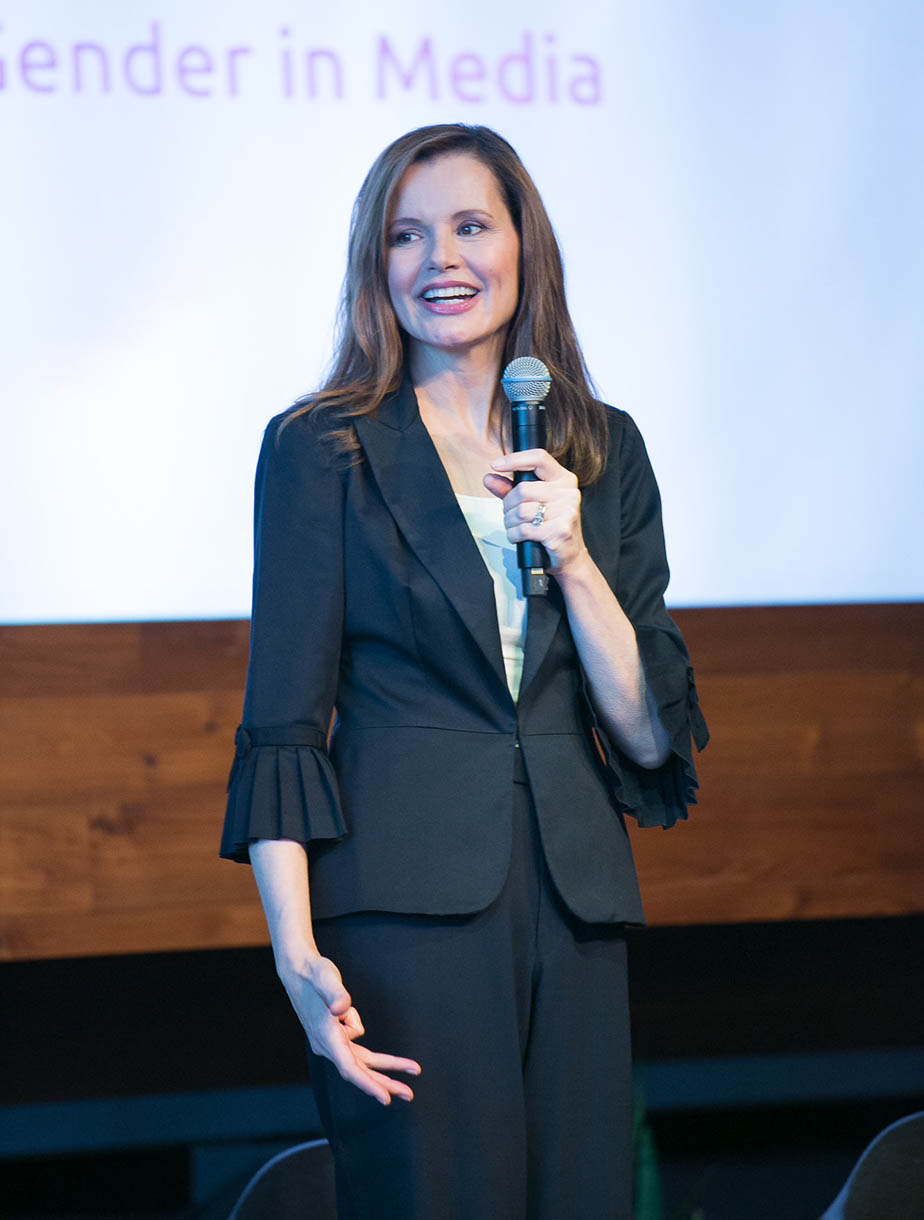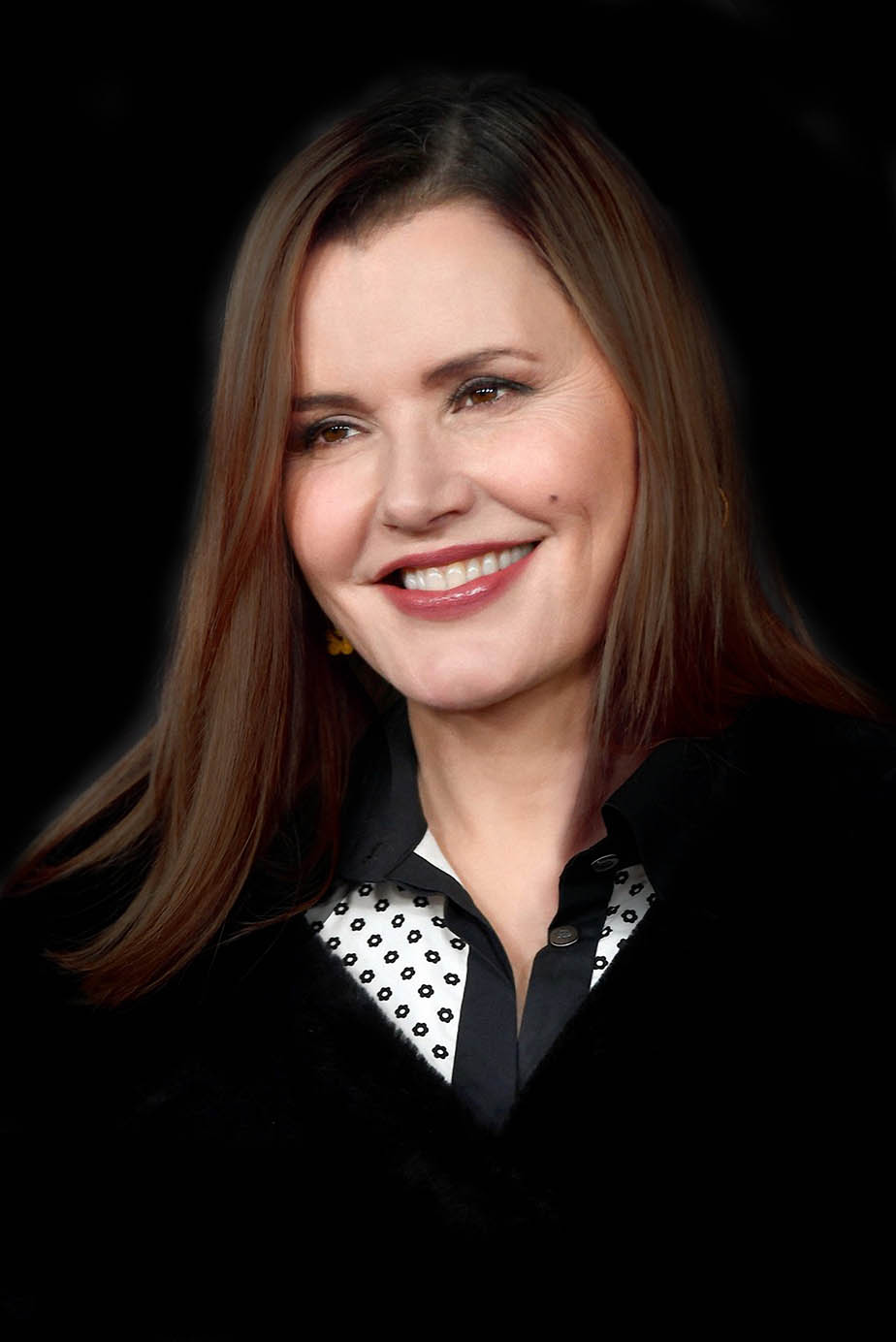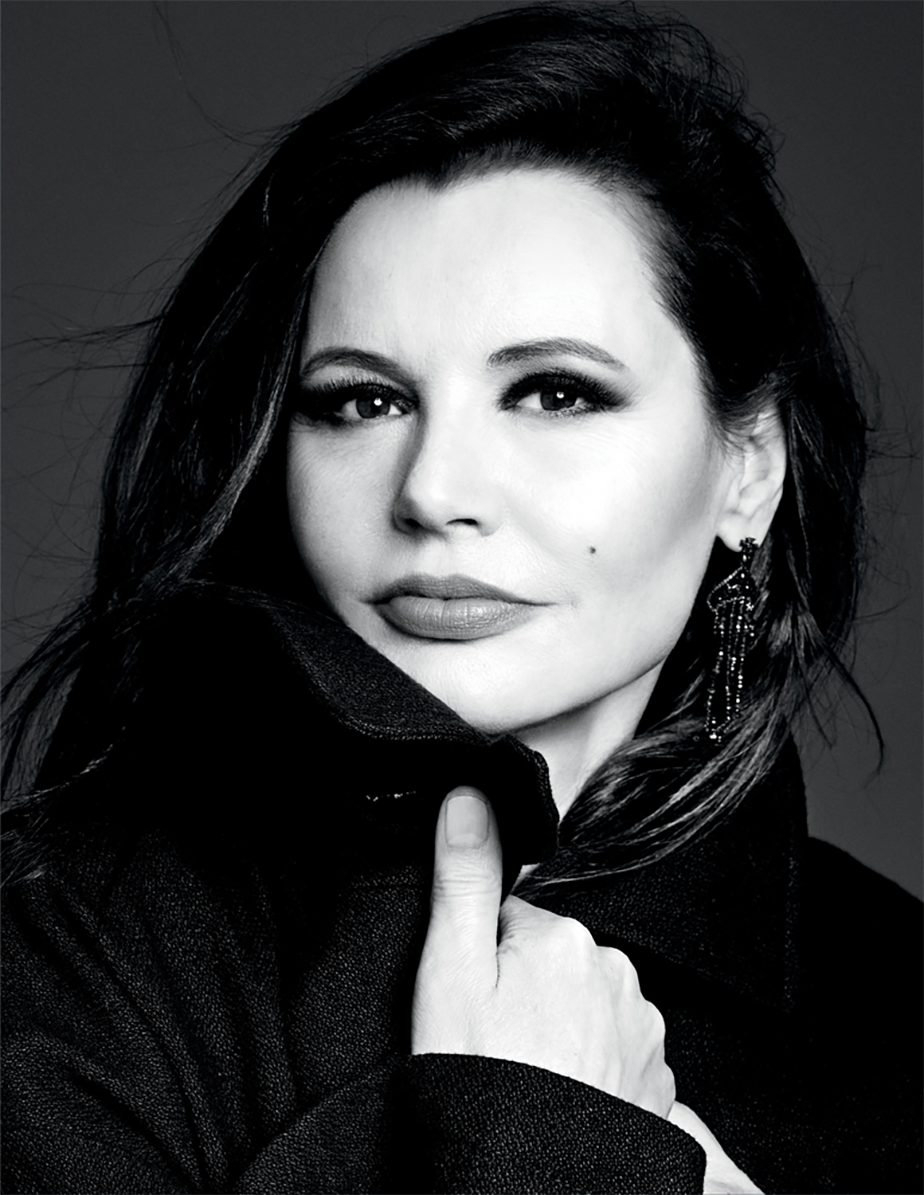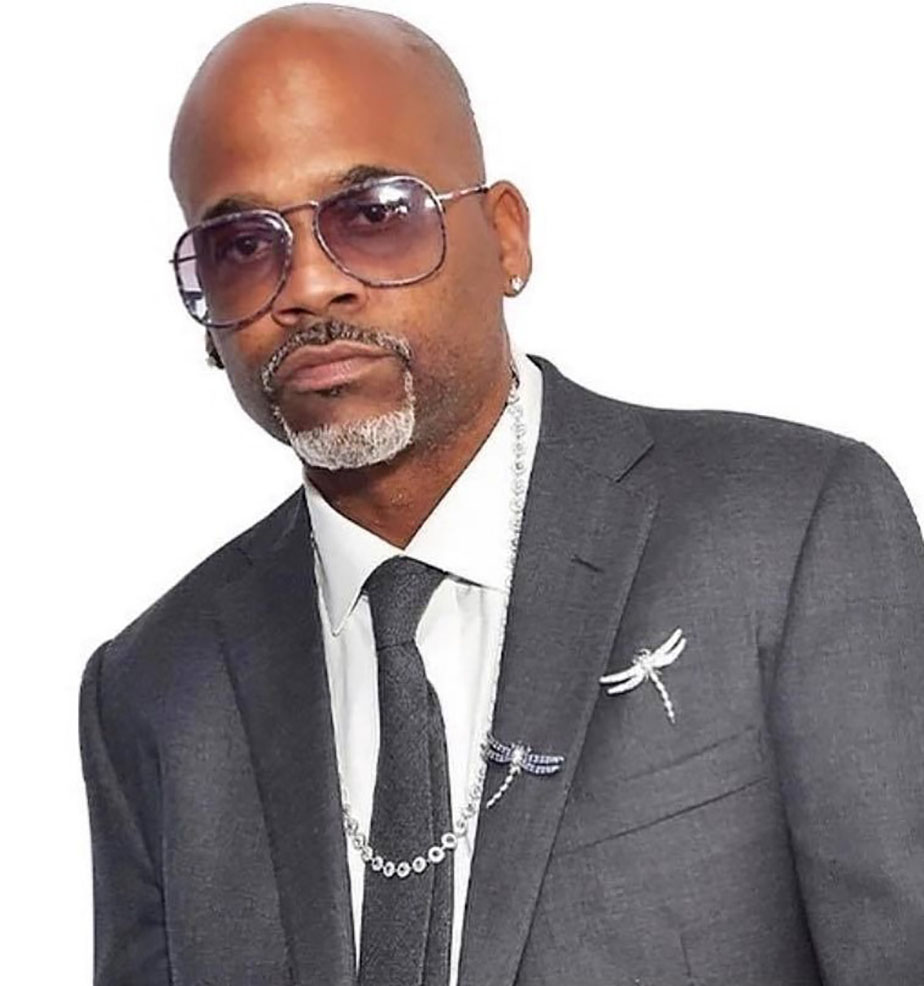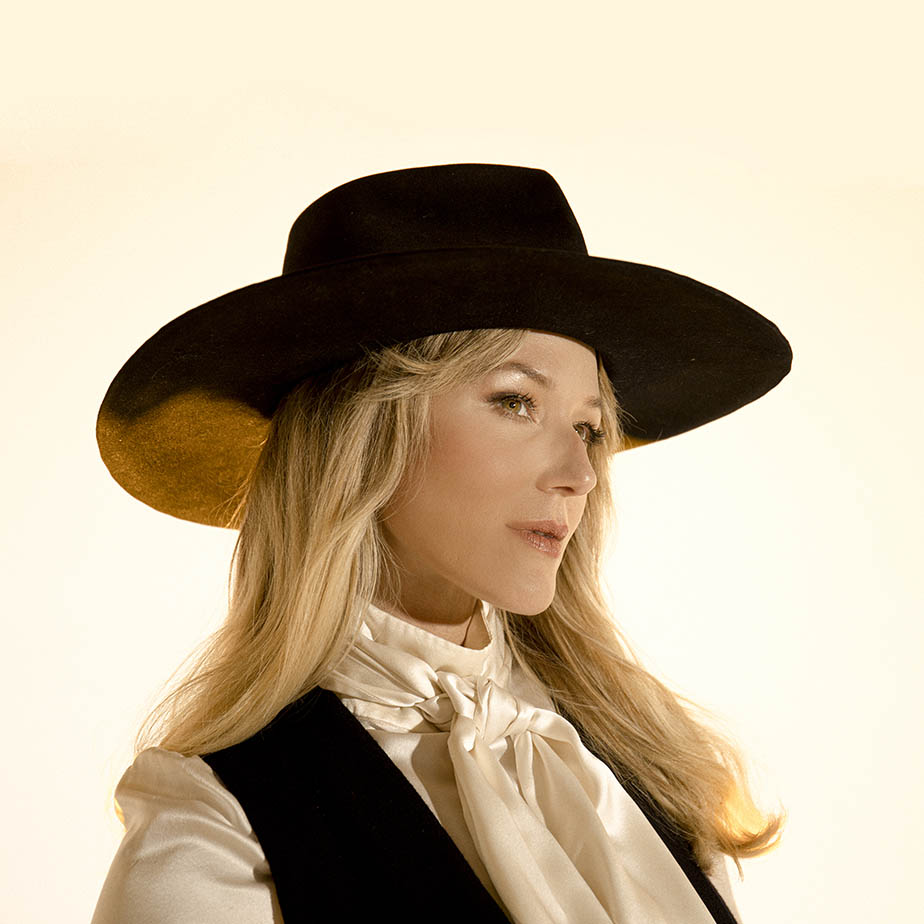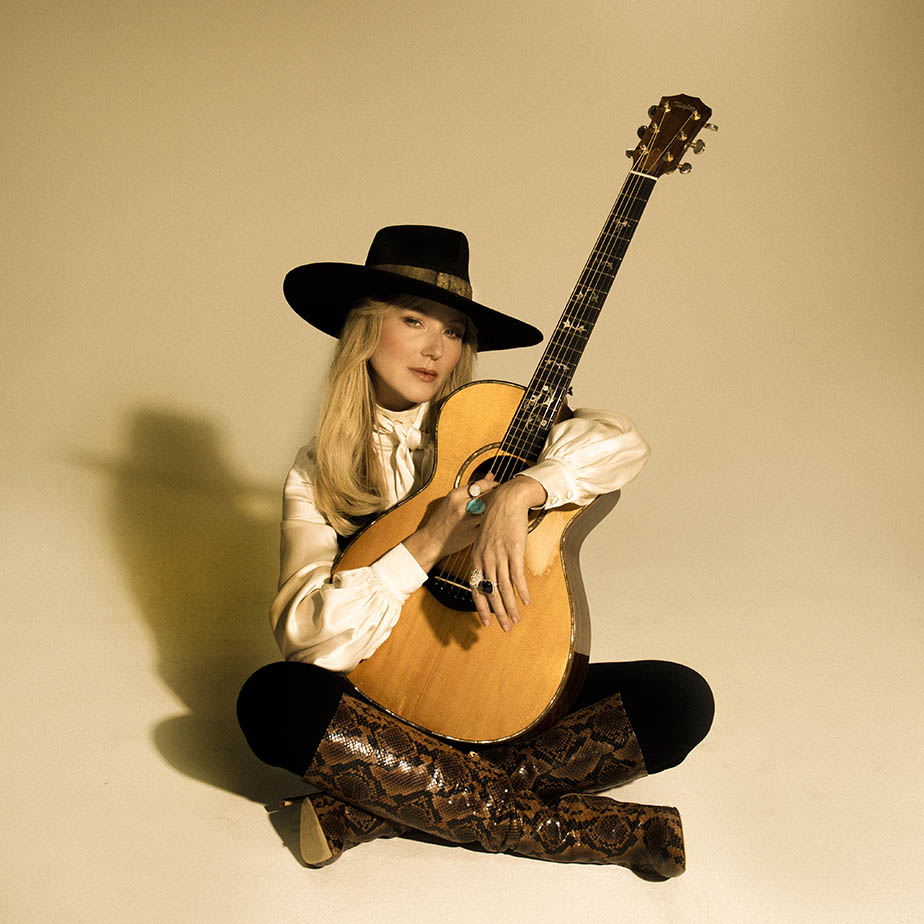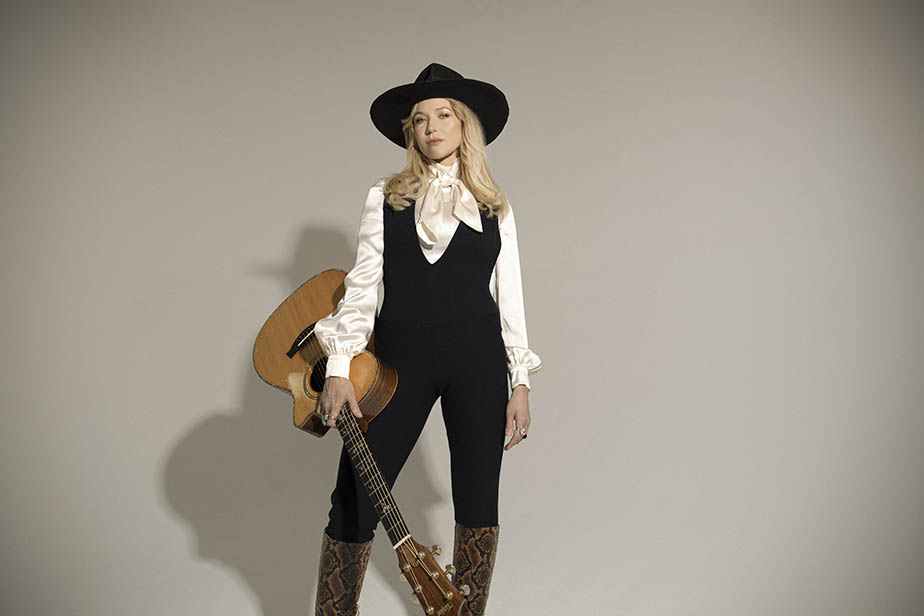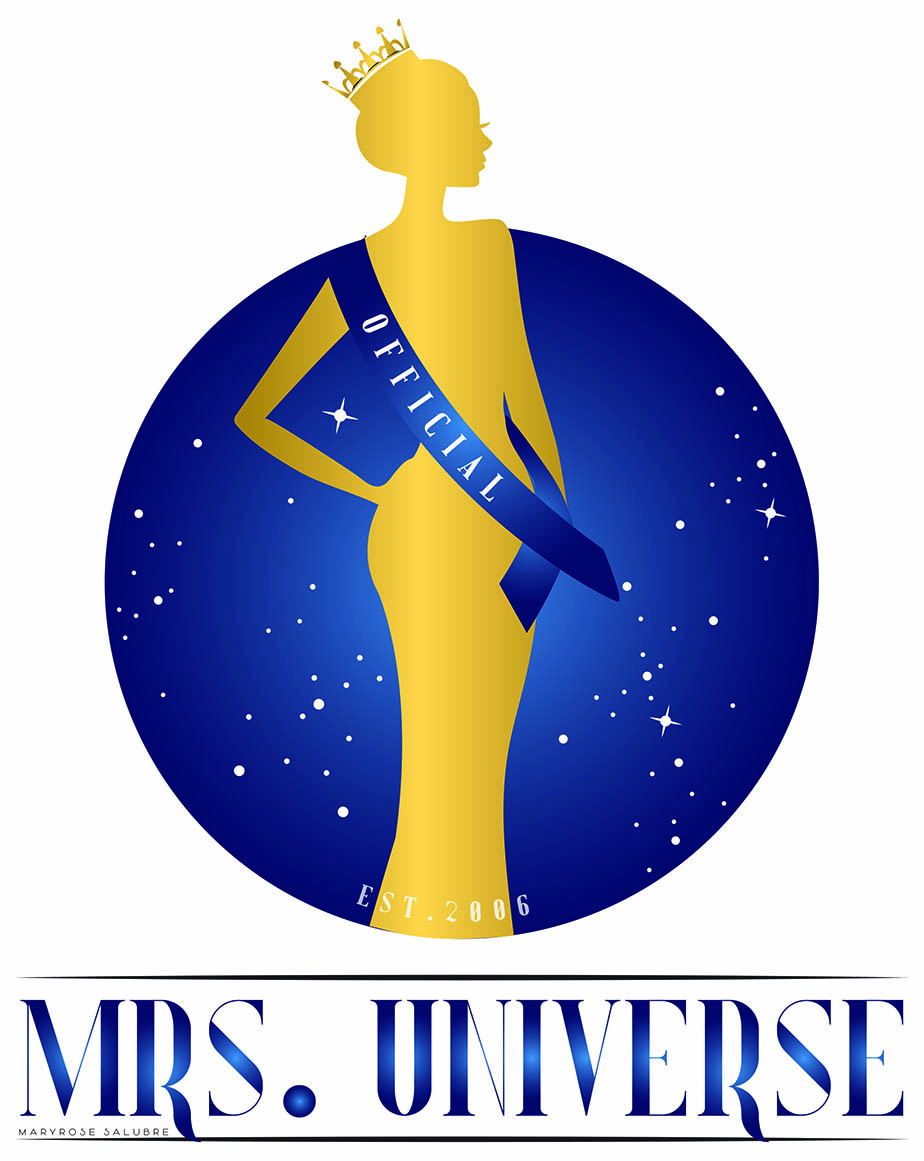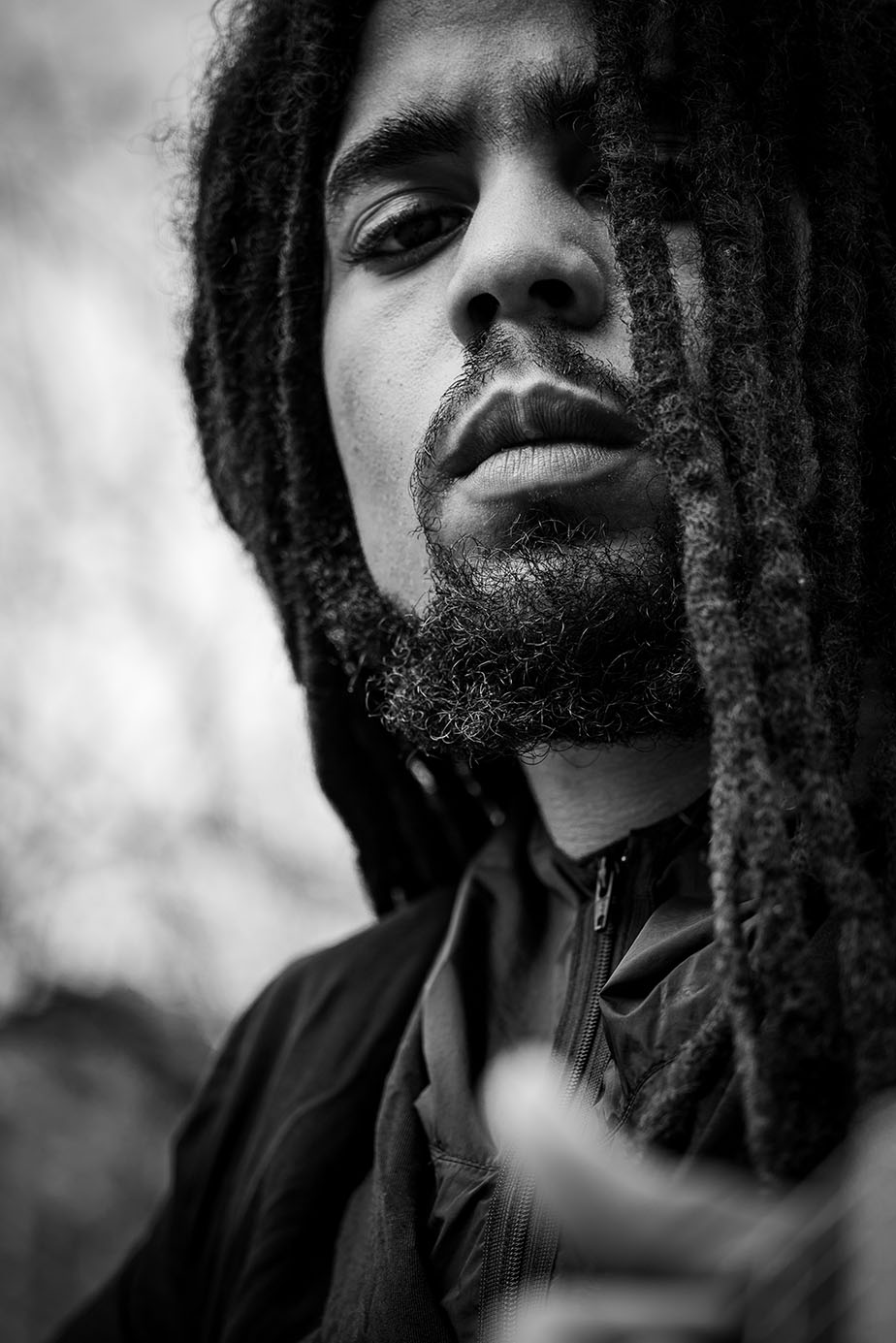
By Allison Kugel
Singer-songwriter Skip Marley, born to the late Bob Marley’s daughter, Cedella Marley and David Minto, was thrown into the deep end of the Marley music legacy when, at thirteen, his Uncle Stephen Marley brought him on stage to sing his grandfather’s iconic hit, One Love in front of thousands of fans. From that moment on, music wasn’t an option, but a providential imperative for the now twenty-five-year-old singer-songwriter. The Marley family dynasty and its mission of spreading love and social change through meaningful lyrics and reggae-infused beats has crowned its new prince in Skip Marley.
By 2017 Skip was collaborating with multi-award-winning and multiplatinum-selling pop artist, Katy Perry, when she featured him on her hit single Chained to the Rhythm, bringing him mainstream attention. The year 2020 led to another high-profile collaboration when Marley featured Grammy-nominated R&B artist H.E.R. on the remix of his single, Slow Down.
In spring 2020, Slow Down, with over 185 million global streams, became the quickest and biggest-streaming song in Marley family history, and elevated Skip to over 417 million total global artist streams, also Making Marley the first Jamaican-born artist to reach the #1 spot on the Billboard Adult R&B chart. At the same time, Skip became the first Jamaican-born artist inside the Top 15 on Billboard’s R&B/Hip-Hop Airplay chart in a decade and a half.
Collaborations with family, including his Uncle Damian Marley, on the single That’s Not True deliver Bob Marley’s time-tested message, while Make Me Feel featuring rap icon Rick Ross and singer Ari Lennox introduce Skip to an audience that embraces a fusion of reggae, R&B and rap sounds.
Skip Marley is cultivating an eclectic catalog of music that speaks to a generation that refuses to be put in a box, but instead embraces the diversity of expression. The year 2022 shows no signs of slowing down, with Skip’s latest single Vibe featuring Jamaican deejay Popcaan, and Marley’s first U.S. headlining twenty city tour, Change.
Allison Kugel: You were born in Jamaica. When did you move to the states?
Skip Marley: I think officially when I was five years old, but we were always back and forth.
Allison Kugel: What three pivotal life events have made you the person you are today?
Skip Marley: I would say the first is when I was born (laughs). The second was in 2005, at my grandfather’s celebration concert in Addis Ababa, Ethiopia. That was the first time I had seen a million or more people come out and celebrate my grandfather’s music and the message. It’s the reason we do what we do, so even at that young age it touched me, and I began to have more of an understanding…
Allison Kugel: Of who he was…
Skip Marley: Right, for the first time. And the third one was probably when my uncle Stephen [Marley] brought me on stage because that really gave me the push that I needed in music. That was my first shot, and I was about thirteen years old. He brought me up there to sing, and I sang One Love. That was the first time I really sang. They threw me in the water, so music chose me.
Allison Kugel: When you were growing up, was there ever a thought of maybe I’ll do something other than music? Or was it always a feeling that music was your destiny?
Skip Marley: Although I was always involved in music from when I was very young – piano lessons, guitar lessons, and things of that nature – I was always more into sports. But it was really that moment when my Uncle Stephen brought me onto the stage that I thought, “Yeah, this music thing chose me. I think it’s for me.”
Allison Kugel: Wow. What does it feel like to carry the last name Marley? Does it feel like a tremendous responsibility?
Skip Marley: It’s an honor and it’s a responsibility because I have a duty. I feel like I have a duty as a next-generation Marley to keep on [going with] this legacy that we built; keep moving forward and taking it into the world. So, I do feel like I have a responsibility, but it’s not a dark pressure. People always ask me that, but what we do is like a light, the words of a speaker. It does a lot for people, and for me. If my song affects one person, it has done its job to me.
Allison Kugel: Yes, I know exactly what you mean. You’ve certainly reached a great number of people with your music. Your song Slow Down (featuring H.E.R.) has been streamed more than 185 million times, globally. I’m sure you know that.
Skip Marley: I don’t really check those things too much, but wow!
Allison Kugel: Well, I checked it and it was the biggest streaming song in Marley family history.
Skip Marley: I was aware of that part.
Allison Kugel: What did your uncles and your mom (Cedella Marley) say to you when they heard that?
Skip Marley: They were proud for me, but it’s not for me. It is always “we.” I’m representing all of them, so for me, it’s a family victory and it’s not just about me.
Allison Kugel: It’s interesting you say that. Obviously, I knew who your grandfather, Bob Marley, was. But it wasn’t until a friend of mine said to me, “You know, I really admire the Marleys, because they understand that the collective is more important than one person. They understand what it is to serve something greater than each individual.”
Skip Marley: Right, right. We all strive together. We might not all sing, but we have our own lanes for us to go on, yeah mon. Music wasn’t forced on me. Music is something you have to choose. You have to pursue that for yourself. It wasn’t like I was told, “You’re going to make music.” My life was school, school, school growing up.
Allison Kugel: Were you an “A” student?
Skip Marley: No (laugh). I was in school and would always think about music. As I got to junior high and then high school, I was always just thinking about music, and even after school, I would have three or four hours of music. I had a drive to learn as much as I could.
Allison Kugel: I’ve heard that it takes 10,000 hours of practice to master anything you want to do.
Skip Marley: Yes. If you love something and have a passion for something, and if you are driven towards something, whatever it is, you are not going to give up when you love it. I have had countless hours where my mom would have to say, “Yo, that is enough [practice] for now.” I have such great examples of hard work, discipline, and dedication. From a very young age, it was instilled in me, that kind of work ethic. It’s taken me to where I am, and it is going to take me further and further.
Allison Kugel: You are very close with your mom Cedella, who is your grandparents, Bob and Rita Marley’s daughter, of course. What is the best advice she has ever given you?
Skip Marley: Work harder than everyone. Nothing is going to be given to you. Perfect practice makes perfect. You have to believe and get up and work for it. Nothing is given. She was a living example of that, and so every day was an example for me.
Allison Kugel: Is your Uncle Ziggy [Marley] the head of your grandfather’s estate?
Skip Marley: Yes. I think my grandmother, my mother, and my Uncle Ziggy all work together.
Allison Kugel: Do you guys have family meetings where you decide how you are going to license and distribute the Bob Marley brand, his music, and Bob Marley merchandise?
Skip Marley: Yes, for sure. Always family meetings. If it’s not in person, it’s Zoom [meetings].
Allison Kugel: Tell me how Covid, the whole pandemic, and everything that has gone on, how did it transform you as a person?
Skip Marley: I would say it made me focus more and made me more disciplined. You had more time to really think things out. It gave me time to work on myself and work on my music; to work on my mind and things like that. It was really a fitness thing. I worked out every day, six days a week, so that has been my thing from Covid.
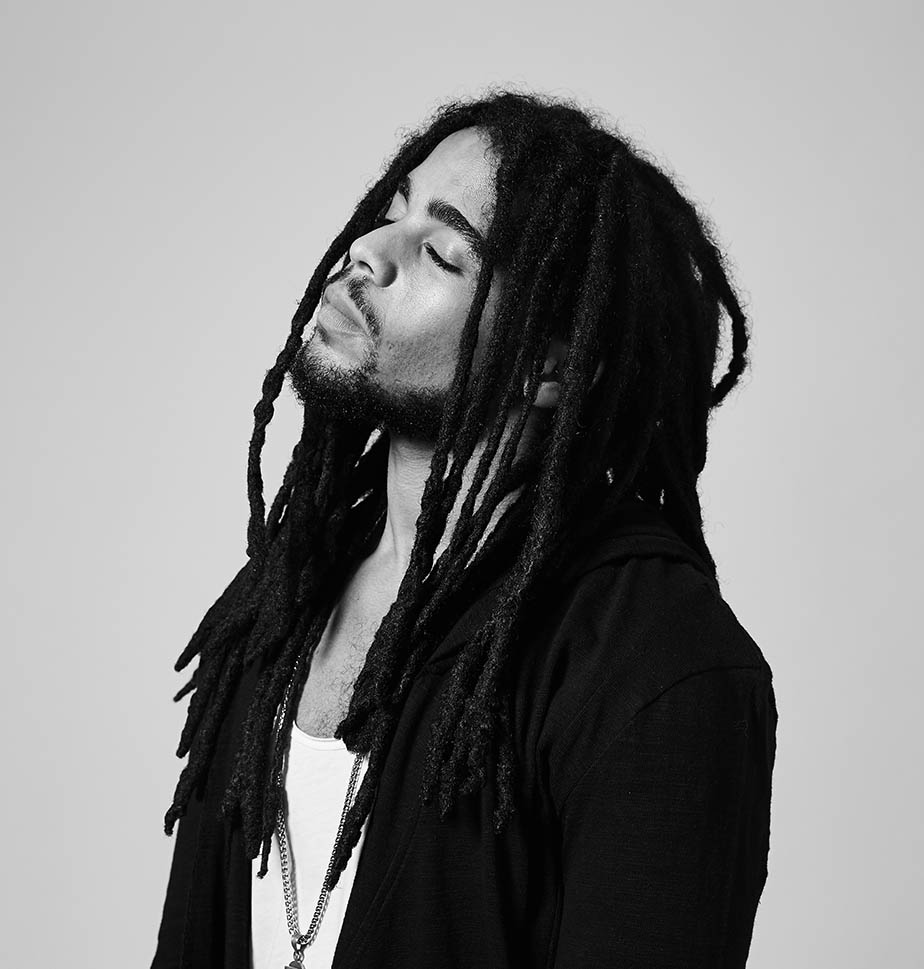
Allison Kugel: One of my favorite songs of yours is That’s Not True, featuring your Uncle Damian Marley. How did that family musical collaboration come together?
Skip Marley: I had a couple of songs and brought them to my uncle, thinking I would love to have him on a song. He went through a couple of them and liked That’s Not True, so we took it from there and just built the song.
Allison Kugel: It’s very conscious and reminiscent of your grandfather, Bob Marley’s, social messaging in the lyrics. Who wrote it?
Skip Marley: Me, my Uncle D, and a guy called CyHi da Prynce.
Allison Kugel: Do you like putting social messages in your music?
Skip Marley: For sure, because the music is a message. Music is a vehicle and a tool. Music is used to unify people and spread messages of upliftment. For me, personally, I think we should use music as a benefit and try spreading messages of love, equality, and freedom. All of these things, for me, are important. I try to always make sure the music speaks.
Allison Kugel: Where do you place material things, objects, and material wealth in your hierarchy of priorities?
Skip Marley: That is not my priority. My family is my main priority, my first priority. For me, possessions are not. I can have nothing as long as my family has something. That is how I am, personally.
Allison Kugel: I feel the same way. Probably why that particular song, That’s Not True, really speaks to me.
Skip Marley: Wow! I love that.
Allison Kugel: I don’t understand people’s obsession with handbags, shoes, clothes, jewelry, and all of that stuff.
Skip Marley: Yes, those things are only for a while. It’s momentary. It doesn’t really have use.
But to each their own. I’m not going to tell people how to live, or whatever, but if you want more of that kind of living…
Allison Kugel: Your new song Vibe is definitely a vibe (laugh)! I was listening to it on rotation over and over, and it is such a great chill, party, dance, feel-good song.
Skip Marley: That was the intention. I was doing that song during the whole Covid time and people just want to free up, feel good, be with each other, and dance. All of those things were missing. The human experience, the connection, and the good vibes. So, “(He begins to sing) She wanna catch a vibe, she wanna spend some time, into the light…” It was just a light party kind of a song. Then Popcaan, who is featured on the song, was the perfect [collaborator].
Allison Kugel: My favorite line in the song is, “Face it, she don’t want notin’ basic.” (Laugh) That really speaks to my soul!
Skip Marley: (Laughs) Well, that is reality. As time goes on, she realized she don’t want notin’ [basic]…. and finds something worth her time.
Allison Kugel: The first time I ever heard you on the radio was in the Katy Perry song Chained to the Rhythm in which you are featured. How did that collaboration happen?
Skip Marley: It’s a funny story. At the time, around 2016 or 2017, that whole time I was actually working with the whole MXM camp, which was Max Martin and all those guys, top producers. He was playing my song, Lions in the studio when Katy [Perry] walked in and said, “Who is that?” He said, “Oh, that’s Skip Marley.” She said, “I need him on my next single.” So he calls me and says, “Katy Perry needs you in her next single.” I said, “Katy Perry?!” He said, “Yeah, boom.” I gave him a verse and she came in when I was finishing. I met her for the first time, and everything took off from there; Grammys, Brits, I Heart Radio. It was all a beautiful journey and I’m glad Katy reached out to me and I got to spread the message to such a big platform and audience.
Allison Kugel: When your grandfather, Bob Marley, was alive, he was so passionate about the island of Jamaica. But there came a point when it was dangerous for him to stay there, for political reasons. There were attempts on his life and he had to relocate to London, where he lived until the end of his life. Are there still safety issues for your family in Jamaica, or is that something that is long in the past?
Skip Marley: That is in the past, but [we have] security for sure, always. That is our home and a place that we love, and we take care of. That is also part of my responsibility as the next generation.
Allison Kugel: And your grandfather’s home at 56 Hope Road is now a museum.
Skip Marley: Yes, that is a museum now. It’s his home and a museum. If you haven’t gone, I would suggest it heavily when you are in Jamaica, to visit Hope Road.
Allison Kugel: My son is half Jamaican, so I want to take him there.
Skip Marley: Really?
Allison Kugel: Yes.
Skip Marley: Nice, well, it would be perfect for him then.
Allison Kugel: What do you want people to know about the island of Jamaica?
Skip Marley: It’s a very spiritual place with loving people. A very beautiful place. Nowhere else feels like Jamaica. The people speak for it and the music speaks for it. You can see how the world gravitates towards it because there is an energy there. It’s almost like a spirit that just moves you. That is what I would say about Jamaica when my grandma (Rita Marley) was there. It’s like a connection for me, personally.
Allison Kugel: Are you close with your grandmother?
Skip Marley: Yeah mon, very close with my grandmother. From her, I learned that when all odds are against you, don’t give up. When the whole world turns against you, my grandmother never gave up. My grandmother built Tuff Gong to where it is now, and my grandfather’s [legacy] to where it is now, and her humanitarian efforts as well. She’s also a doctor, Doctor Alpharita Marley, so I have a lot to aspire to and a lot to look up to. She took on the world. And my mother, they are both my examples in that sense, of the work ethic and discipline, and selflessness. It is rare nowadays, but selflessness is very important.
Allison Kugel: And how have they shaped how you view and relate to woman?
Skip Marley: Everything. And the way I carry myself.
Allison Kugel: This year you are embarking on your first solo headlining tour. Why 2022, and how do you feel about it?
Skip Marley: I feel great, and I feel excited. Why 2022? Why not (laugh)? I was already supposed to tour two years ago, so now it has been a long time coming. I’m looking forward to taking the message to the people and the music on the road.
Allison Kugel: Do you have anybody opening for you?
Skip Marley: I’m still figuring that out.
Allison Kugel: So, there is a job opening for somebody out there (laugh).
Skip Marley: Somebody, yes (laugh).
Allison Kugel: Your accent and your energy… I feel like my blood pressure is lowering as I sit with you and speak to you.
Skip Marley: That’s a good thing. Love is the key.
Allison Kugel: Yes, I can’t be a typical high-strung American around you.
Skip Marley: You just have to be what you are.
Allison Kugel: The tour is called Change. Tell me about that.
Skip Marley: We have to make a change in this world so we can see it’s not impossible. You’re free to do whatever you want and free to be whoever you want to be. The whole concept of the album Change, and the name of the tour, is because people are always waiting on things to change, when people can be the change they want to see.
Allison Kugel: Are you a spiritual guy?
Skip Marley: For sure, I think I’m spiritual, naturally. I feel like it has a lot to do with my family, even when I was growing up. I used to go study my grandfather a lot, so that opened up my mind from a young age and was so beneficial. You can’t have one without the other. You have mental good, spiritual good, physical good. and it goes hand in hand. You need balance. It’s like Yin and Yang.
Allison Kugel: Do you subscribe to any religion?
Skip Marley: No, it’s a way of life, of living. God is within and God is all around us. Where there is light, there is hope. Especially in these times, now, there is a lot of everybody against everybody and that’s not what we need or what we want. All it’s doing is causing more headache, suffering, and all of these things. How about we make a change as the people? How about we decide, because the people change things. It is not some guy telling you he is going to do something for you. It’s really the people.
Allison Kugel: Where do you see yourself in five years?
Skip Marley: I see myself making more music, touring the world, keep doing what I’m doing. Only God knows, so I don’t really think about that too much. I really focus on now.
Allison Kugel: When you are writing lyrics, do you ever feel like you have to hold back in terms of certain social or political messages? Or do you feel unrestrained, like you can just write whatever you feel that you want to write and sing about?
Skip Marley: Whatever inspiration comes to me; I always try to write about. Not saying there haven’t been times I’ve had to go back and adjust things, but I try to feel what the music is saying. I don’t really try to sit down and think too much. I kind of feel it, because music talks to you if you listen. It can talk to you, so you can kind of hear what the music wants, in a sense.
Allison Kugel: What is your creative process?
Skip Marley: It depends. Since I play music too, I produce my own stuff as well as write, so for me, a lot of time it starts with me on guitar, piano, bass, or wherever. Or I am humming something, or I hear words in my head, or if I have an idea and start it from there and slowly build with a couple of chords and progressions. I slowly just build until I have a chorus, hook, or verse. Whatever it is first, and I just follow it. I just go with the feeling and follow the flow. I don’t really try to overthink it too much.
Allison Kugel: Where do you stand on substances? Do you use marijuana as a creative conduit, or are you more of a sober person?
Skip Marley: Yes, herb opens up inspirations, opens up higher heights, for sure. Herb is beneficial. I’m not saying you have to use it, but I don’t see why not. You don’t have to smoke it. You can eat it, drink it, boil it, apply it as lotion. So, it benefits. I don’t see why not and I’m glad to see America is slowly taking those steps forward in terms of the plant, and the plant can save the place, you know? The more the merrier (laugh).
Allison Kugel: (Laugh) Tell me about when you are on tour. How is the show going to go? Do you have a band you are going to work with?
Skip Marley: Yes, I will have a five or six-piece band. It’s like an hour to an hour and a half set. My current songs and some new songs, some unheard songs; and my grandfather’s songs, of course. People will really enjoy themselves, have a good time, and catch a good vibe. That is what it’s all about. I want them moving, people feeling something. Music is food. You have to be careful what you ingest nowadays.
Allison Kugel: You effortlessly drop gems. I can tell you’re a thinker and I love that.
Skip Marley: Well, thank you.
Allison Kugel: It is so true. You have to watch what you listen to. What your eyes see, what your ears hear, and what you take in.
Skip Marley: With everything. Subconsciously, you have to be aware of things you are doing. Trust me, it’s a temple, you know.
Allison Kugel: Since you brought up food, what kind of diet do you adhere to?
Skip Marley: I’ll tell you what, I’ve been pescatarian for a while now. I just eat fruits, veggies, and fish. Sometimes I’ll eat a piece of chicken, but most times I eat fish, veggies, and fruit. Clean eating, natural eating. I don’t really drink sugary drinks or anything like that. I make my own drinks, I make my own juices, and make my own food.
Allison Kugel: Any sweet tooth?
Skip Marley: Sometimes when I smoke, I get a little sweet tooth. Nothing really too much. I would eat something sweet, but I’m not a guy that craves something sweet.
Allison Kugel: Are you a guy who believes in monogamy and marriage? What is your take on that?
Skip Marley: Well, to tell you the truth I think marriage is still there if it’s really real. It doesn’t have to be real nowadays, because everything is so wishy-washy, but if it’s really real then marriage is great and it’s a Godly thing. But as of right now, me personally, I don’t need to know about marriage right now (laugh). I mean, marriage is good. Marriage is a Godly thing. It’s supposed to be a Godly connection, so it speaks for itself. What do you think?
Allison Kugel: Life is all about risks, right? You are never going to be 100% sure about anything you do in life. I think if I really felt that deep of a connection, now at this point in my life, I would do it. No risk, no reward. It’s like having kids. You are never ready to have kids. You’re never ready to go on tour, as you know. You’re never ready to move. You’re never ready to do anything, but that is the beauty of life. Sometimes you have to close your eyes and jump.
Skip Marley: Sometimes you just have to stay ready (laugh).
Allison Kugel: I mean, I won’t be jumping out of an airplane anytime soon, but I would get married (laugh).
Skip Marley: That was a great explanation, one that lines up very much with what I’m saying. If it’s real, then why not? Me right now, I don’t know about marriage.
Allison Kugel: You’re still young and you’re doing awesome. All of you, the Marleys are such a talented family, and all of the music is incredible, but I feel like your music really feels… like a second coming of your grandfather. His spirit is in you.
Skip Marley: I understand that, and I appreciate that, thank you.
Allison Kugel: Your music is really beautiful, it’s diverse, and some of it makes you feel good. Some of it makes you think, and that is a beautiful thing.
Skip Marley: I’m glad that you appreciate it.
Allison Kugel: Yes, very much so, and that is why I wanted to talk to you. If you could have a conversation with your grandfather and ask him anything, what would you like to ask him?
Skip Marley: I would ask him which books to read.
Allison Kugel: Really? Okay.
Skip Marley: I have a lot of questions, but I would love to hear what kinds of books to read, too.
Allison Kugel: Do you know what some of his favorite books were when he was alive?
Skip Marley: I mean, The Bible. Some books about His Imperial Majesty (referring to Haile Selassie, the founder of Rastafarianism), The Wise Mind of Emperor Haile Selassie, and things like that. [He] definitely read a lot of African books. There are a lot of things I would love to ask him, but that is the first thing that came to my mind.
Allison Kugel: Do you believe in time travel?
Skip Marley: No, not right now. What do you think? You think time travel is real? I’m not going to put you down. What do you think?
Allison Kugel: Well, thank you (laughs). I have this weird obsession with the concept of time travel. I don’t know why, but I feel like sometimes time is kind of speeding up or slowing down. Sometimes things that happened twenty years ago feels like they happened yesterday, and something that happened last week feels like it was a year ago, and I think it’s strange.
Skip Marley: That is true. I can relate to that. Time is like a circle.
Allison Kugel: I don’t think time is what we think it is.
Skip Marley: I know what you mean. Hey listen, we only know what we know right now, so who knows?
Allison Kugel: I believe in things that we can’t perceive with our five senses.
Skip Marley: You believe in things we cannot see. You believe in things where people would call you crazy or label you for this and that. We should be free, and we should be what we want to be.
Allison Kugel: I feel like you can believe in your imagination more than you can believe in what you see with your eyes. Does that make sense?
Skip Marley: That is true, because it’s like the power of belief.
Allison Kugel: Yes, the power of belief.
Skip Marley: Jump in the fire and never get burned. It’s like you walk by fate. You can only walk by what is inside.
Allison Kugel: Exactly. I ask this of everybody, and I know that you are young so I don’t know how you would contemplate this, but what do you think you came into this life as Skip Marley to learn, and what do you think you came here to teach?
Skip Marley: Well, what I came here to learn is purpose. Once you find your purpose, like for me, personally, it is to spread love. These messages are just within me, from the connection of my grandfather to my mother to me. I feel there is a responsibility, and these words and messages need to be spoken and things need to be said. I would say I’m God’s soldier, a music warrior. I’ve come to fight with music. I’ve come to take on the world with music and come shape the world with music. That is my thing, music, the consciousness, and the collective community of mankind; and restoring that kind of connection.
Skip Marley’s U.S. tour, Changes hits 23 cities from March 20th through May 27th. For information and tickets visit skipmarley.com/tour. Follow on Instagram @skipmarley and stream on Spotify and iTunes.
Watch and listen to the extended interview with Skip Marley on the Allison Interviews podcast at Apple Podcasts, Spotify, and on YouTube.


